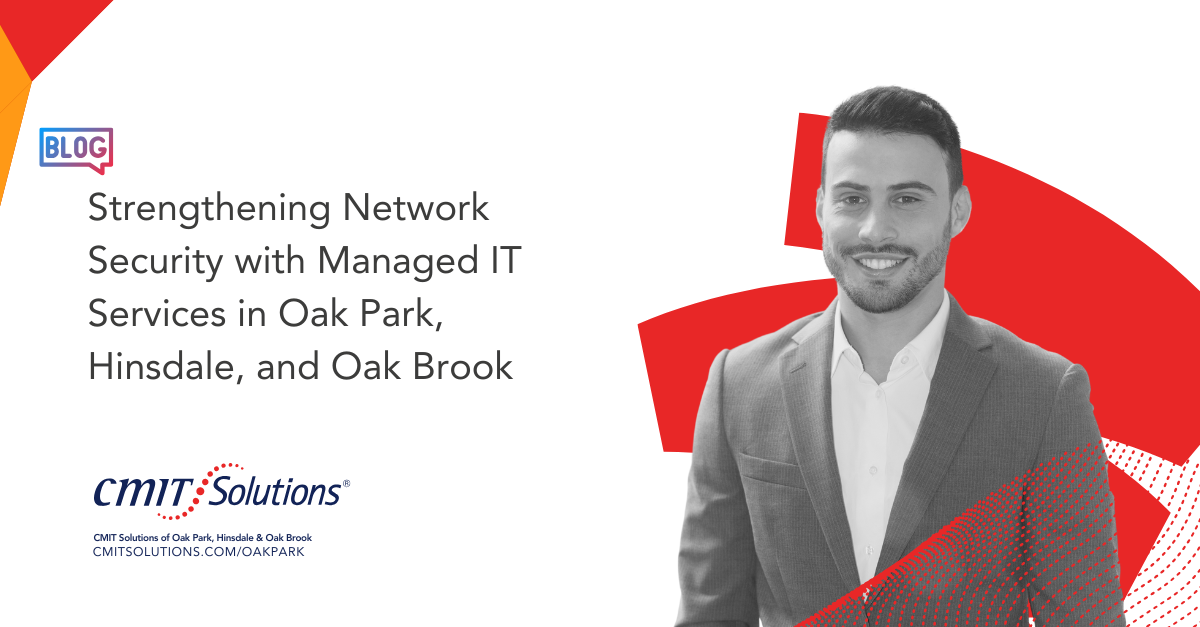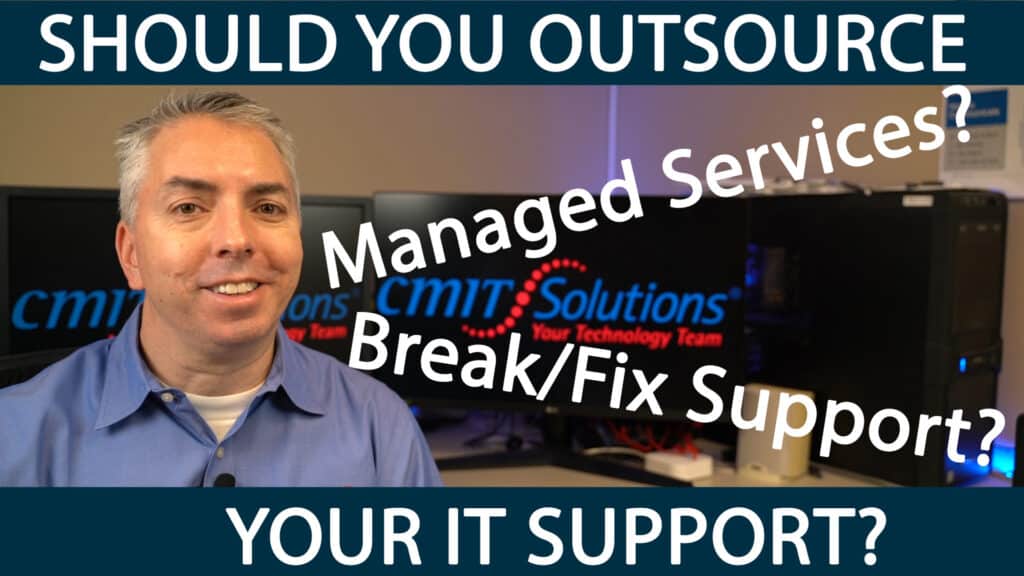In today’s digitally connected world, network security is more critical than ever. Businesses of all sizes rely on secure and stable network infrastructure to protect sensitive data, ensure operational efficiency, and defend against cyber threats. However, as cybercriminals become more sophisticated, small and mid-sized businesses in Oak Park, Hinsdale, and Oak Brook must adopt proactive security strategies to mitigate risks.
At CMIT Solutions of Oak Park, Hinsdale & Oak Brook, we provide comprehensive managed IT services that help businesses strengthen their network security, protect sensitive information, and prevent unauthorized access. Our solutions are designed to identify vulnerabilities, implement security best practices, and ensure compliance with industry regulations.
In this article, we explore the importance of network security, how managed IT services can enhance protection, and the best practices businesses can implement to create a secure IT environment.
The Growing Importance of Network Security
A secure network is the backbone of modern businesses. Without proper protection, cybercriminals can exploit vulnerabilities, access confidential data, and disrupt business operations. Network security is essential for:
- Preventing Cyber Threats – Defending against malware, ransomware, and phishing attacks.
- Protecting Customer Data – Ensuring sensitive customer and financial information remains secure.
- Maintaining Compliance – Meeting regulatory requirements such as HIPAA, PCI-DSS, and GDPR.
- Reducing Downtime – Preventing cyberattacks that could disrupt business operations and cause financial losses.
With Managed IT Services, businesses can take a proactive approach to network security and minimize the risks associated with cyber threats.
How Managed IT Services Strengthen Network Security
1. Continuous Network Monitoring and Threat Detection
Cyber threats can strike at any moment. Managed IT services provide 24/7 network monitoring to detect and mitigate security risks before they cause harm. Real-time monitoring ensures that businesses are alerted to potential threats, allowing IT teams to respond quickly and prevent security breaches.
With Network Management, businesses can stay ahead of cyber threats with automated security alerts and advanced monitoring tools.
2. Multi-Layered Cybersecurity Solutions
A single security solution is not enough to protect a business from cyber threats. Managed IT services implement multi-layered security strategies that include:
- Firewalls and Intrusion Prevention Systems (IPS) – Blocking unauthorized access and preventing cyberattacks.
- Endpoint Protection – Securing company devices, such as computers, laptops, and mobile phones.
- Data Encryption – Protecting sensitive data in storage and during transmission.
With Cybersecurity Solutions, businesses can implement advanced security solutions that protect against modern cyber threats.
3. Secure Cloud Infrastructure and Backup Solutions
Many businesses now store data in the cloud, making cloud security a top priority. A managed IT provider ensures secure cloud storage, preventing unauthorized access, data breaches, and cloud misconfigurations.
- Automated Cloud Backups – Ensuring businesses can recover critical data in case of a cyberattack or system failure.
- Secure Access Management – Implementing role-based access controls and multi-factor authentication (MFA).
With Cloud Services, businesses can leverage secure cloud solutions without compromising data integrity.
4. Proactive Patch Management and System Updates
Outdated software and unpatched vulnerabilities are a major security risk. Cybercriminals exploit outdated systems to gain access to business networks. A managed IT provider ensures regular updates and security patches to close vulnerabilities.
With IT Compliance, businesses can maintain regulatory compliance while keeping their IT infrastructure secure.
Best Practices for Strengthening Network Security
1. Implement Strong Password Policies and Multi-Factor Authentication (MFA)
Weak passwords are one of the most common security risks. Businesses should:
- Enforce complex passwords with a combination of letters, numbers, and special characters.
- Require MFA for all employees, adding an extra layer of protection.
- Use password managers to generate and store secure passwords safely.
With IT Security, businesses can reduce unauthorized access risks and prevent credential-based attacks.
2. Restrict Network Access and Segment IT Infrastructure
Not all employees need access to every part of the network. Businesses should:
- Use Role-Based Access Controls (RBAC) – Limiting access based on job responsibilities.
- Segment Networks – Separating critical business systems from general employee access.
- Monitor Third-Party Access – Managing vendor security risks with strict access controls.
By implementing IT Management, businesses can improve security while maintaining efficiency.
3. Conduct Employee Security Awareness Training
Human error is a major cause of security breaches. Employees should be trained to:
- Identify phishing scams and social engineering attacks.
- Follow secure browsing practices and avoid suspicious websites.
- Report cybersecurity incidents immediately to IT teams.
With Managed IT Provider, businesses can educate employees and reduce cybersecurity risks.
4. Develop a Comprehensive Incident Response Plan
Even with strong security measures, businesses must prepare for potential cyber incidents. A managed IT provider helps develop and test response plans that include:
- Identifying and Containing Security Breaches.
- Recovering Affected Systems with Secure Backups.
- Notifying Customers and Regulatory Authorities if Necessary.
With Disaster Recovery, businesses can ensure continuity and fast recovery in case of a cyberattack.
Future Trends in Network Security for 2025 and Beyond
As cyber threats evolve, businesses must stay ahead of emerging trends:
- AI-Powered Security – AI-driven threat detection to identify suspicious activities.
- Zero Trust Security – Verifying every user and device before granting access.
- Advanced Endpoint Protection – Securing mobile devices, IoT systems, and remote endpoints.
With Endpoint Security, businesses can future-proof their cybersecurity strategies.
Conclusion: Strengthen Your Network Security with CMIT Solutions
Network security is a top priority for businesses in Oak Park, Hinsdale, and Oak Brook. With CMIT Solutions, you gain advanced cybersecurity, 24/7 monitoring, and proactive IT management to protect against modern cyber threats.
Contact us today to fortify your network security and keep your business safe in 2025 and beyond.





